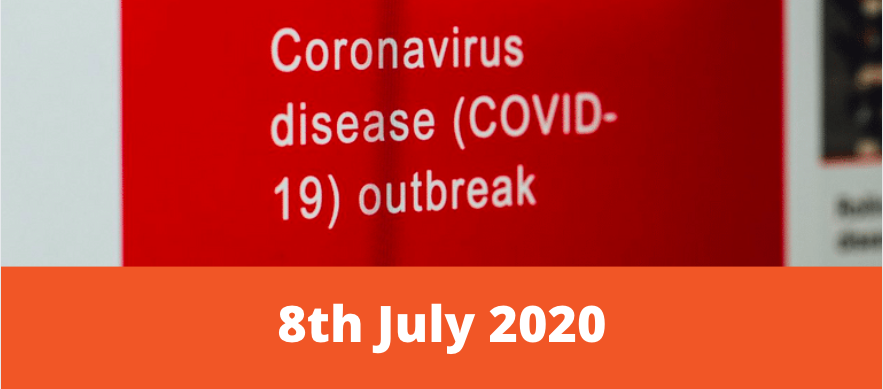Our fortnightly summary of ongoing advocacy initiatives, interesting surveys and research, government developments and useful resources. Contact us if you’d like to get this update directly into your inbox!
1. Ongoing advocacy initiatives
On Friday 3 July, Asylum Matters joined with 41 partner organisations to publish Wake Up Call, a new report based on evidence submitted to the National Audit Office (NAO) during its recent investigation into the Home Office’s new asylum support and accommodation contracts.
In the report, we set out how problems that arose during the transition to the new contracts almost fatally disrupted the asylum support system, which we point out has operated on a knife edge and has lurched from crisis to crisis over many years
Evidence presented to the NAO and set out in the report revealed problems with:
- Impossible hold times on the advice line: One charity said it had to wait 13 hours 40 minutes on hold between just three clients;
- Appalling delays receiving asylum support: Refugee Action said it took on average 40 days for destitute people it supported to receive financial support and/or accommodation between July 2019 and January 2020. It added on average people waited an extra 15 days to receive their prepaid Aspen cards, which are used by people seeking asylum to shop;
- Terrible accommodation standards: one charity said a family with a disabled daughter was moved to a flat on the fourth floor; in another case a mother and her child were sent to a home without any furnishings, white goods, or equipment to cook;
- Long stays in contingency accommodation: during the troubled transition the new contractors began using more contingency accommodation to house people, resulting in a lack of dignity for people in such accommodation, risks to mental and physical health, and people living in unsuitable accommodation for lengthy periods.
Many of these problems are reflected in the NAO’s own report, also published on 3 July, which reiterates that during the transition, people seeking asylum faced difficulties accessing appropriate accommodation and specialist support and advice.
Wake Up Call highlights the need for lessons to be learned by the Home Office from these severe failings; otherwise we risk a return to business as usual as we begin to emerge out of lockdown. We maintain that there are systemic problems with these contracts and with the asylum support and accommodation systems, that too often result in the needs of people seeking asylum not being met, and therefore systemic solutions are required.
Government announces it will act on all 30 Windrush recommendations
Crisis convenes joint letter to No 10 on homelessness
Refugee Council launches new action on evictions threat
Refugee Action launches new action on asylum support rates
Following the Home Office’s announcement of a £1.85 uplift in asylum support rates, Refugee Action has launched a new write to MP action, asking them to demand this pitiful increase in asylum support be urgently reviewed.
They’ve also produced a new Twitter animation, highlighting that it would take 115 days for someone to save the additional 26p a day to pay for the cheapest set of face masks.
Domestic Abuse and Immigration Bills
We were hugely disappointed to see that proposals to extend legal protections from domestic abuse to migrant women were not supported in parliament on Monday. A large coalition of women’s, refugee and migrant and other groups had pressed MPs to support amendments to the Domestic Abuse Bill, to provide protection from abuse for all women, regardless of their immigration status.
It comes a week after the double disappointment of defeats in the House of Commons on amendments to the Government’s Immigration Bill on ending indefinite detention; and protecting refugee family reunification following the UK’s departure from the EU. This came despite strong campaigning and cross-party support for amendments on both subjects.
2. Research and Reports
Runnymede report on immigration and the lottery of belonging
NRPF report from Citizens Advice
Citizens Advice has released a new report – ‘Nowhere to Turn’ – on how immigration rules are preventing people from getting the support they need during the COVID-19 pandemic. They state that benefit restrictions and minimum income requirements have forced many migrants to continue working when it has been unsafe to do so.
Data from their services also demonstrate the disproportionate impact the pandemic has had on people of colour. They report a 110% rise in inquiries about NRPF and non-EU migrants’ access to benefits, 82% of which have come from people of colour.
Citizens Advice have called for a temporary suspension of certain immigration rules, including NRPF conditions, the Habitual Residence Test, and the minimum income requirement for those renewing family visas. Additionally, they call for those on a 5 year route to settlement not to be forced onto a 10 year route if they are unable to show minimum income.
Jesuit Refugee Service UK publish new report on detention
JRS UK have published ‘Detained and Dehumanised: the impact of immigration detention’, drawing on the accounts of 27 forcibly displaced people supported by the organisation, who have direct experience of immigration detention.
3. Home Office and Government Developments
Glasgow attack
Along with colleagues across Scotland and the whole of the UK, we were devastated to learn of the violent attack of 26 June at the Park Inn hotel in Glasgow.
An urgent debate took place in the House of Commons on 29 June in response to the tragedy, covering issues relating to asylum accommodation both specific to events in Glasgow and more widely. Subsequently a temporary pause on asylum dispersal to Glasgow has been put in place.
Following the incident an incredible response has been mounted in the city by organisations and groups – including but not limited to MORE, The Unity Centre, No Evictions, Scottish Refugee Council, Positive Action in Housing alongside many others – have worked together and with the statutory authorities to rapidly coordinate support to people affected; while a newly formed group – Refugees for Justice – has published a manifesto.
Our thoughts and good wishes remain with all those affected and everyone supporting them at this incredibly challenging and painful time.
Further reports on threat of eviction of refugees from asylum accommodation
The Independent and Inside Housing are among media outlets which have reported on the Home Office’s intention not to extend the suspension on evictions from asylum accommodation beyond the end of June. Charities, including NACCOM and the Refugee Council, warned that this will result in refugees being forced into homelessness during the COVID pandemic.
The Home Office states that it has decided to resume the move-on process by giving notice to those whose asylum claims have been concluded; and that this will resume in a “measured, phased and careful way“, with further details yet to be confirmed. The department has stated in media comments and on Twitter that this process has not yet started.
We maintain enforced destitution is never acceptable, not least during a public health crisis. The current lack of certainty on the Government’s timescales means that many people in asylum accommodation remain in a state of limbo, not knowing what will happen next.
Asylum Matters and NACCOM are calling on the Home Office to urgently take urgent action to protect people seeking asylum from homelessness during the pandemic and beyond. This includes a further suspension of evictions into homelessness; emergency temporary legislation that allows and funds local authorities to provide emergency housing to anyone at risk of homelessness (regardless of immigration status); and a permanent end to No Recourse to Public Funds conditions. You can read our position paper here.
[It’s come to our attention that the hyperlinks on our position paper we shared in the last update did not work – this has been fixed in the linked version above!]
If you’re interested in working with us and NACCOM to protect people seeking asylum from destitution, please get in touch with us at [email protected].
MHCLG announces further funding
The Ministry of Housing, Communities and Local Government (MHCLG) has announced a further £105 million to “keep rough sleepers safe and off the streets during the coronavirus pandemic.” This interim funding is proposed to support the 15,000 people accommodated through the ‘Everyone In’ initiative at the beginning of the pandemic.
However, it remains unclear whether this funding can be used to support people with No Recourse to Public funds, despite reports suggesting that a large proportion of those accommodated through ‘Everyone In’ are subject to NRPF conditions.
Organisations and local authorities have called for further clarity on this new funding, particularly as to whether it can be used to support those with NRPF. The Local Government Association has also responded to the announcement with a renewed call for a temporary suspension of NRPF conditions during the pandemic.
4. Resources and what we’ve been reading …
- Hackney Migrant Centre, UK Sustain and Project 17 have produced a flyer about eligibility for free school meals in England, to ensure that all families who need it don’t miss out on vital support.
- CARAG have launched a brilliant podcast series – Still We Rise – where they are joined by guest speakers and members to talk about their journeys towards a better life, the struggles they face in the UK and the successes they achieve. Episode 1 speaks about the struggles of people forced to live on barely £5 a day on asylum support.
- The Coventry Telegraph has reported on local MP Taiwo Owatemi’s support for the Lift The Ban campaign, and her contribution on the right to work for people seeking asylum during the Committee stage of the Immigration Bill. The article also shares insight on the impact of the current rules from the Coventry Refugee and Migrant Centre.


